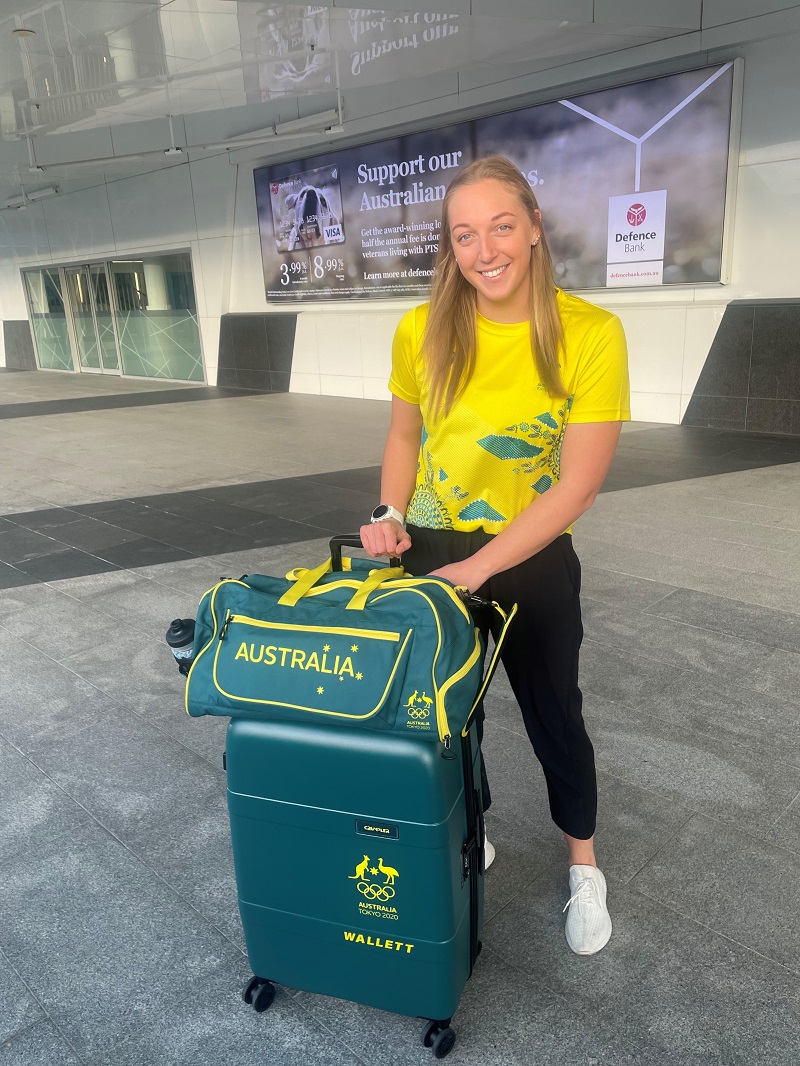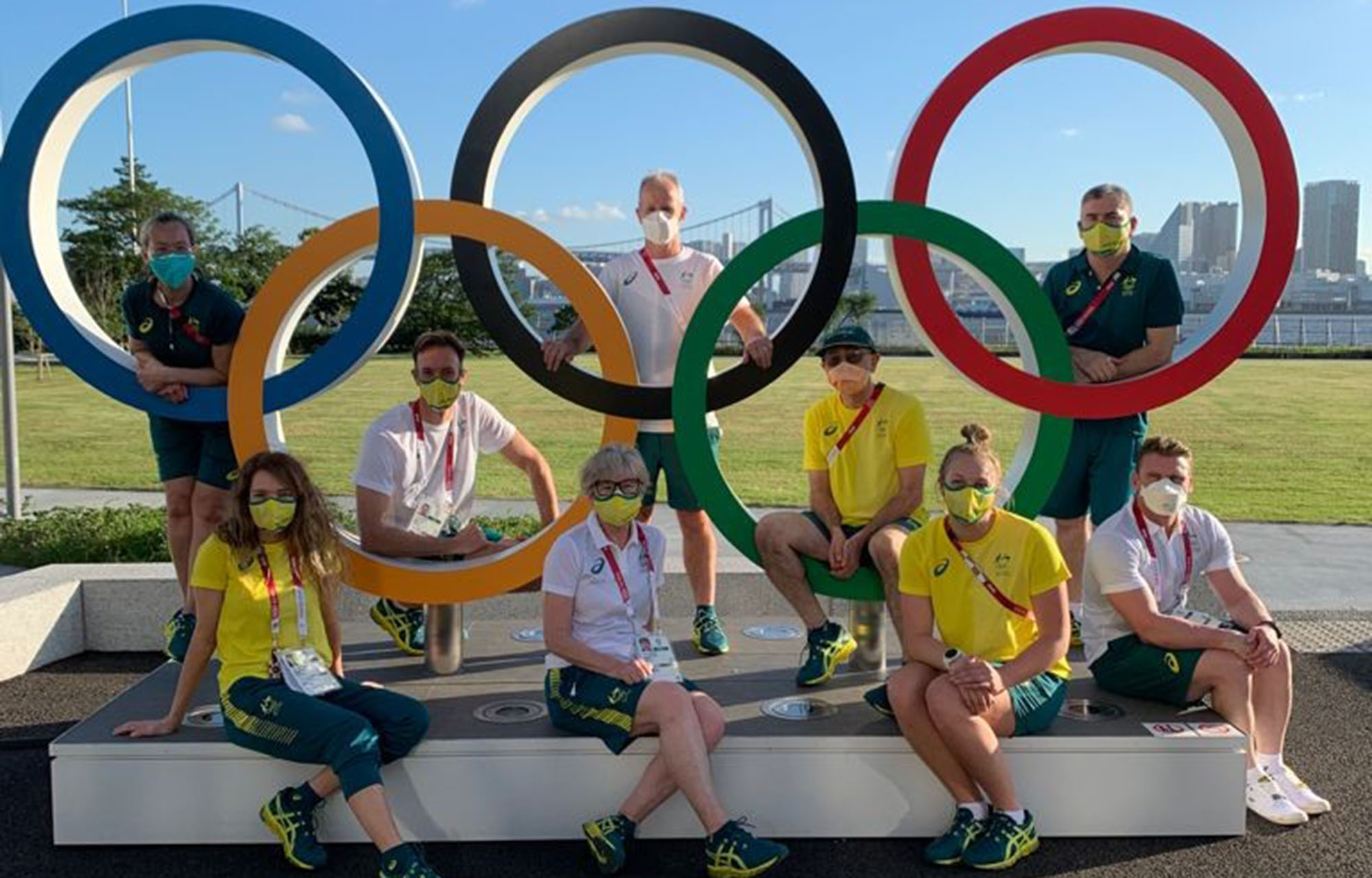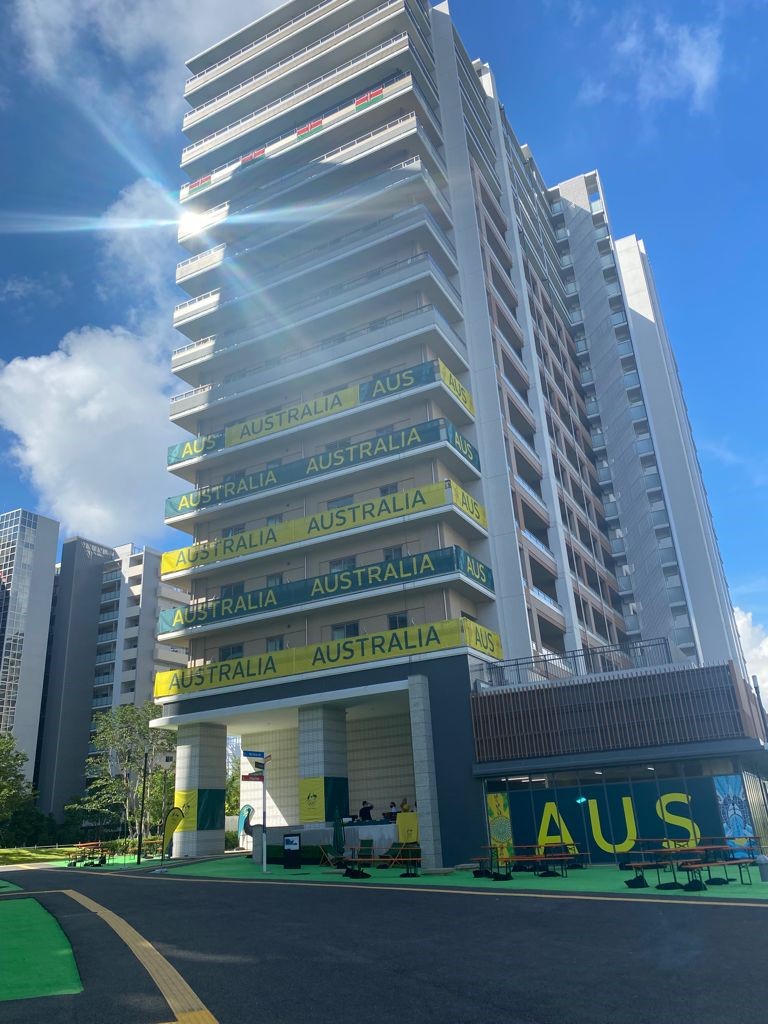Sport, Health & Wellbeing
Tokyo 2020: it takes a village
With Australian borders closed due to the COVID-19 pandemic, there are very few Australians who have been able to travel overseas this year. Unless you’re an Olympic athlete … or a UCRISE PhD student.
Alice Wallett has loved sports her whole life – participating in all sorts of activities as a child – so it was an obvious career choice to study a Bachelor of Sport and Exercise Science (Honours) at the University of Canberra , and then move on to a PhD with the University of Canberra Research Institute for Sport and Exercise (UCRISE) and a job with the Australian Institute of Sport (AIS).
Now, Alice’s dedication to sport has taken her abroad to the Tokyo Olympic Games, where she is working to provide medical and performance support to Australian athletes.
“I work with both the medical team and the Performance Services Team, spending most of my time within the medical clinic and Recovery Hub” Alice says.
“I’ve been helping with COVID-19 logistics, sampling and testing, as well as working in the Recovery Hub as a Recovery Physiologist assisting athletes with post training and competition ice baths, compression usage and heat management strategies.”
Heat management is essential for the athletes, with temperatures in Tokyo reaching at least 32°C most days.
“The weather has been hot, humid and sunny most days, so it definitely beats enduring a frosty Canberra winter!” Alice says.
“My days start early. I usually start preparing and packing ice vests between 5am and 6am, so that the athletes who have an early competition time can leave before 7am.”
Following breakfast (at which Alice can help herself to an incredible spread of health foods), she has to submit her daily COVID-19 saliva antigen test, report her body temperature through the COVID-19 screening app, and then get started for the day in the clinic.

Here, her duties include hydration testing for the Australian Rowing Team, helping with COVID-19 test collections, and the facilitation of delivering personal protective equipment, including face masks, disinfectant and hand sanitiser to arriving sports.
“I must admit, it felt quite strange heading to the airport and travelling overseas given the pandemic– I feel extremely lucky to have the opportunity to come to the Games and be part of the Australian team,” Alice says.
“COVID-19-wise, we’ve been very fortunate in the Olympic Village bubble and under the direction of the Australian Medical Director, Dr David Hughes.
“While I feel safe from a COVID-19 perspective, it’s still so important for us all to be diligent with social distancing, hand hygiene and mask-wearing – particularly in higher risk environments like the Olympic Village dining hall.”
Alice’s work also extends far beyond COVID-19 protocols, with her physiology work at the AIS proving relevant during her time in Tokyo.
Currently, as part of her role at the AIS, she’s providing high performance physiology support to visiting camps, as well as the Institute’s regular athletes.
“My work at the AIS doesn’t drastically differ from my work here in Tokyo,” Alice says.
“I am grateful to be able to support many of the athletes that I have worked with at the AIS in the last few years, here at the games. It’s always nice to see a familiar face, and even better to watch their Olympic dreams come true!”

The Village bubble also means that the Australian team members have a heightened sense of comradery.
“There is a great atmosphere in the Australian HQ building, and there has been a lot of cheering while watching the events on the TVs scattered throughout. The Australians have done so well at these Games, it’s been awesome to be part of the atmosphere,” Alice says.
And although she’s been working long days (sometimes up to 20 hours) Alice has had brief moments where she is able to take a step back and appreciate the full Olympic experience.
One of her favourite parts of the day is stepping away from the Recovery Hub for a brief dinner. All team members can utilise the dining hall within the village.
“Dinner is always something to look forward to. We have access to a two-storey international dining hall that quite literally has everything you could imagine,” Alice says.
“All cuisines are catered for, and there are so many options to choose from. This not only ensures that athletes are able to adequately re-fuel and prepare for their events, but we’ll also never get bored of the food!”
And somehow, despite her long hours and busy workload, Alice has also found some time to experience the Japanese culture – with the usual cultural surprises evident, even within the Village.
“Having never been to Japan before, there have been a few funny occurrences – particularly with the toilets,” Alice says.
“We almost feel like we need a degree to operate the flush … and there are seat warmers, washing capabilities, spontaneous massaging, and water temperature controls that turn on automatically – ensuring every trip to the bathroom is an adventure!”
The furniture in the Olympic Village has also proven unusual.
“The rumours are true – we are sleeping on cardboard beds,” Alice says.
“While extremely sustainable, there have been a few mishaps in the village when beds have collapsed – always providing a laugh when a staff member is seen carrying a bed down the corridor!”
Despite all the late nights and early mornings, Alice couldn’t be more glad that she had the chance to be involved in the Games.
She says she’s been ‘inspired’ by the efforts and commitment of all the Australian team members.
“Getting the opportunity to attend the Olympic Games has always been a dream of mine – as a kid, I dreamed of attending as an athlete, but after studying sports science I was set on going to the Games in a service support role for the athletes,” Alice says.
“The Australian Team is like a huge family, and I have been blown away by the support that everyone provides each other. The hard work and commitment from every single member of the team is admirable.
“For the past five years, there have not only been athletes and coaches devoting their time to make it to Tokyo, but medical teams, scientists, operations teams and administrative staff that have dedicated their time ensuring that Tokyo 2021 is a success – something that I will always be proud to have been a part of.”
Words by Elly Mackay, photos supplied.